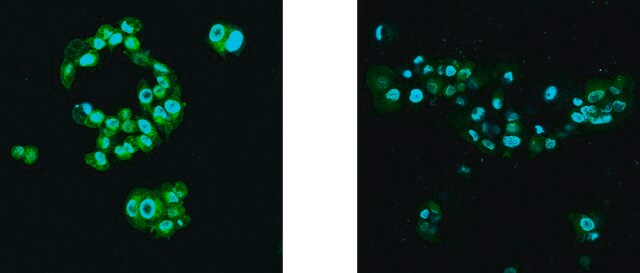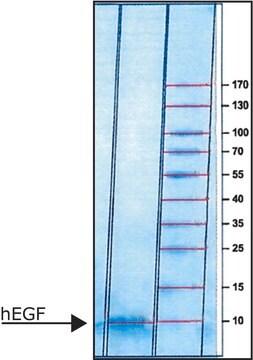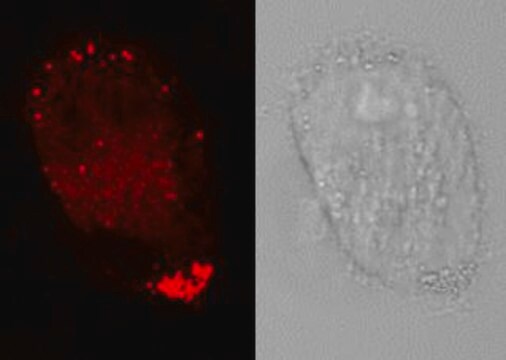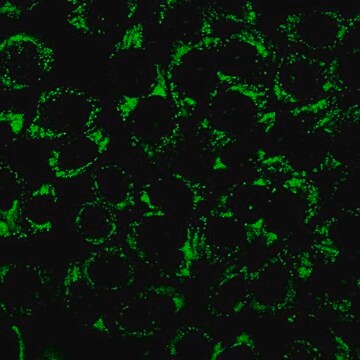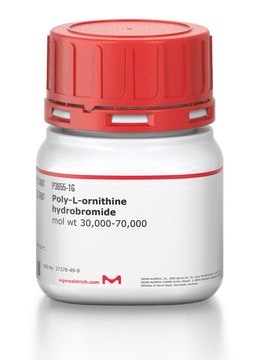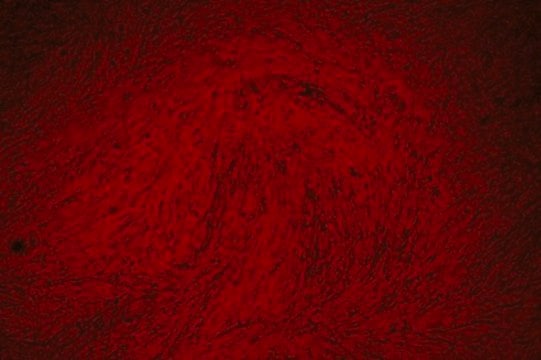SCT249
BioTracker™ Spermidine Polyamine Green Fluorescent Live Cell Probe
Human
Sinónimos:
BioTracker™ Spermidine Polyamine Green Fluorescent Live Cell Probe, clickable polyamine probe, live cell probe, polyamine probe, polyamine transport system probe, spermidine probe
About This Item
Productos recomendados
product name
BioTracker™ Spermidine Polyamine Green Fluorescent Live Cell Probe,
biological source
human
Quality Level
packaging
vial of 500 μg
manufacturer/tradename
Millipore
technique(s)
cell culture | stem cell: suitable
shipped in
dry ice
storage temp.
−20°C
Application
MW: 599.44 g/mol
SPECTRAL PROPERTIES
λex: 494 nm
λem: 508 nm
Features and Benefits
Target description
Polyamine dysregulation is key in a variety of cancers. In colorectal cancer, polyamine content and biosynthesis is significantly higher when compared to normal colorectal tissue. A relationship between polyamines and their metabolites has been used to observe progression in cancers of the breast, lung, colorectal system, ovary, prostate, and pancreas.
In normal cells, there is tight regulation of polyamines through normal cellular mechanisms. One of these is the polyamine transport system (PTS). The characteristics of the PTS are not fully understood, but study of the PTS has shown that many cancer cells have high PTS activity, suggesting this system as a promising target for cancer research.
Storage and Stability
Other Notes
Legal Information
Disclaimer
Storage Class
11 - Combustible Solids
wgk_germany
WGK 3
flash_point_f
Not applicable
flash_point_c
Not applicable
Certificados de análisis (COA)
Busque Certificados de análisis (COA) introduciendo el número de lote del producto. Los números de lote se encuentran en la etiqueta del producto después de las palabras «Lot» o «Batch»
¿Ya tiene este producto?
Encuentre la documentación para los productos que ha comprado recientemente en la Biblioteca de documentos.
Nuestro equipo de científicos tiene experiencia en todas las áreas de investigación: Ciencias de la vida, Ciencia de los materiales, Síntesis química, Cromatografía, Analítica y muchas otras.
Póngase en contacto con el Servicio técnico
